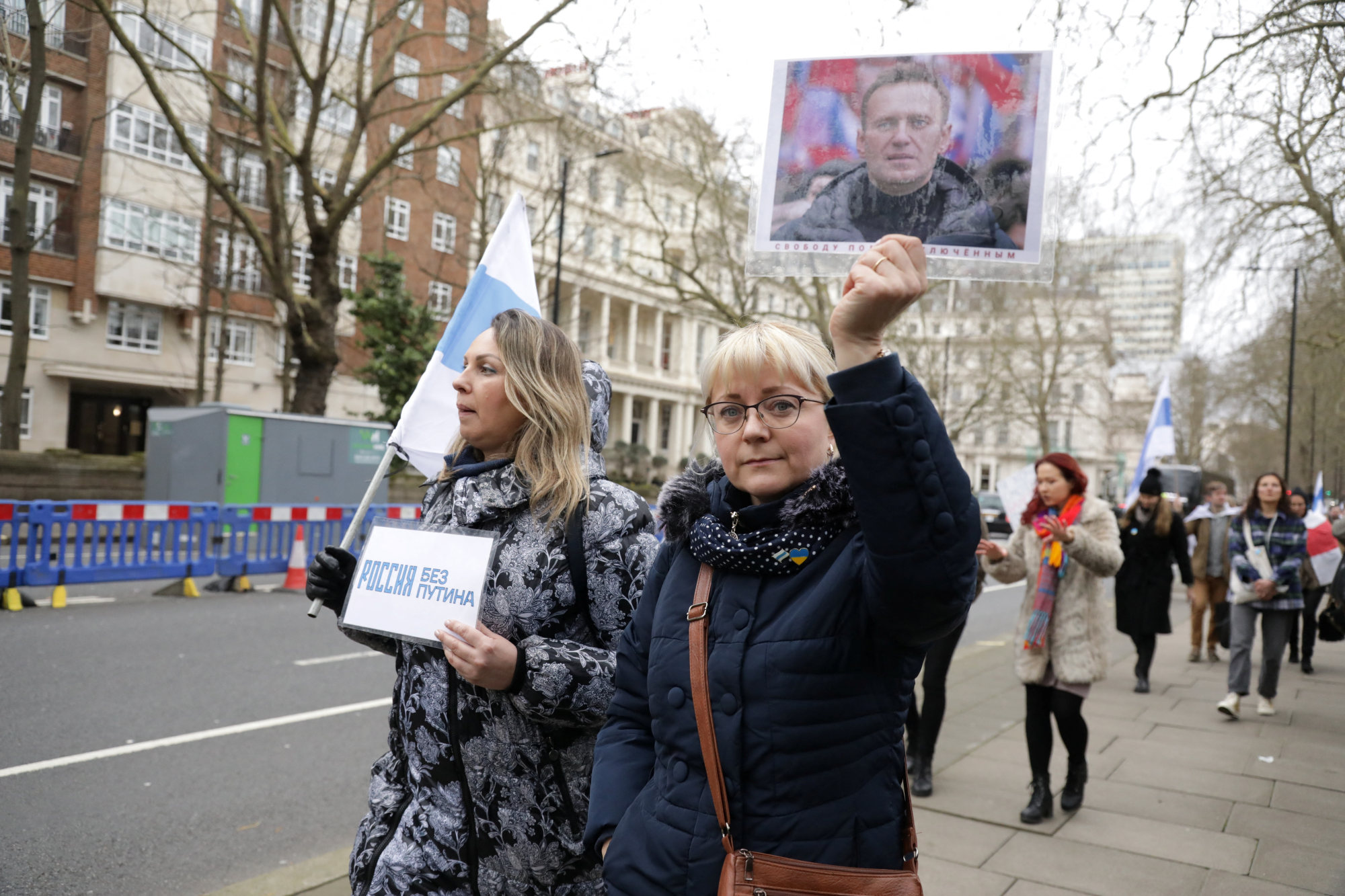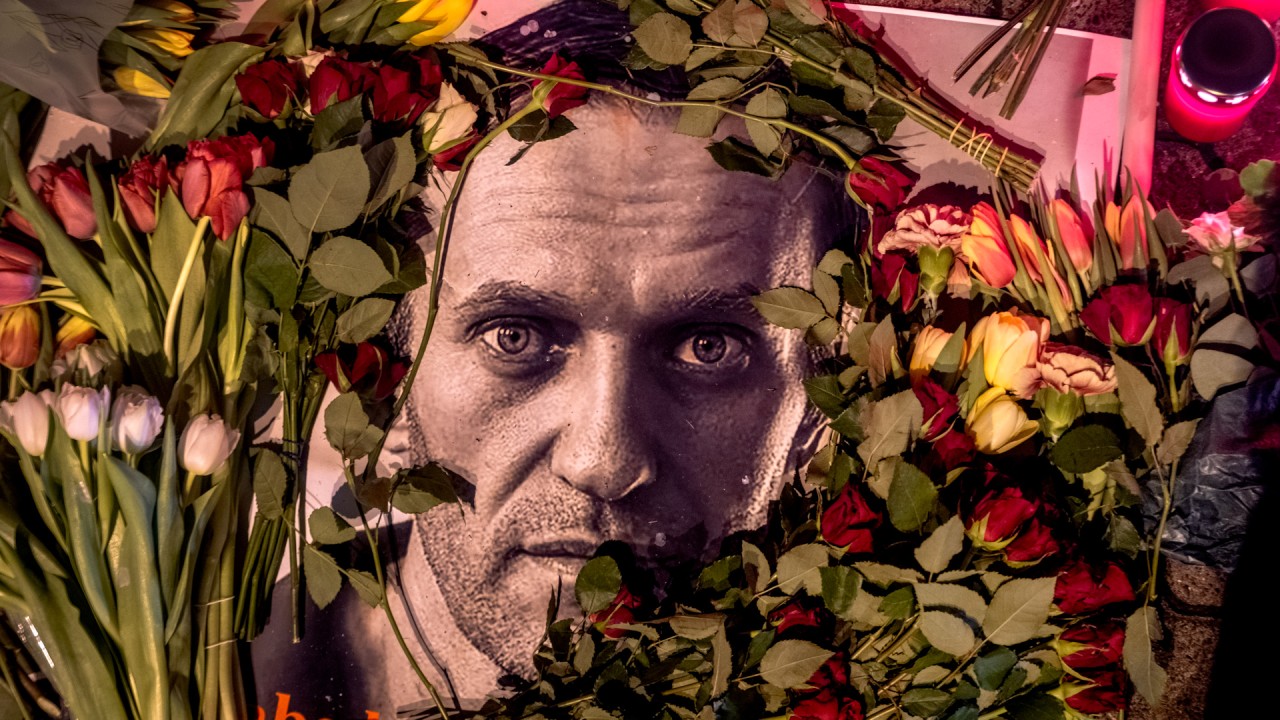The Sankei newspaper said in an editorial published on Tuesday: “We cannot help but feel dismayed by the callousness our political leaders have shown regarding the matter. This is not a fitting image for Japanese politicians aspiring to be recognised as esteemed members of the international community.
“They must do more if they say they respect liberty and democracy.”
The conservative newspaper was similarly incensed over comments by Chief Cabinet Secretary Yoshimasa Hayashi, who responded to a question at a press conference by saying he would “refrain from commenting since we do not have any definitive information”.
Pressed for a reaction to Navalny’s death, he added: “The matter is of grave interest to us and we will continue to closely monitor the situation.”
Tokyo is the third-largest donor of non-lethal military equipment and other aid to Ukraine this year, and Kishida does not want to provoke Russian criticism for that assistance
Yakov Zinberg, a Russia-born professor of international relations at Tokyo’s Kokushikan University, said Russian “propaganda television channels” had not mentioned Japan in their news programmes since the beginning of the year, which suits both Moscow and Tokyo.
“Russia’s strategy is to not be too critical of Japan because they are still buying Russian oil and gas, while Japan still wants – and needs – those resources,” he told This Week in Asia.
“Tokyo is also the third-largest donor of non-lethal military equipment and other aid to Ukraine this year, and Kishida does not want to provoke Russian criticism for that assistance,” he added. “They want to keep sending assistance quietly.”
Murakami agreed that the Japanese government was being “pragmatic” in not criticising Putin or Moscow, as a conflict could not only jeopardise its access to energy supplies but also its strategic interests.
Russia’s Putin ‘giving Japan two fingers’ with pledged trip to disputed islands
Russia’s Putin ‘giving Japan two fingers’ with pledged trip to disputed islands
Tokyo has for decades walked a diplomatic tightrope with Moscow as it sought to regain control over the Kuril Islands, a chain of islands off the most northerly tip of Hokkaido that was seized by Soviet forces in the closing days of World War II.
Successive governments on both sides have held talks on the issue and there have been proposals to return some of the islands to Japanese control or for the joint economic development of the region, but Putin’s attitude has hardened in recent years. Tokyo, however, still harbours ambitions of reclaiming control over the territory, which may be another contributing factor behind its reluctance to condemn the death of Navalny.
“For many people, they realise it is a dictatorship and that something like the sudden death of an opposition leader is always a distinct possibility,” she added. “But there is also the sense that we are not citizens of that country and there is nothing that we can do about it.”

James Brown, a professor of international relations specialising in Russian affairs at the Tokyo campus of Temple University, disagreed with that position, writing in an opinion article published in the Nikkei newspaper on Monday that while Japan claimed to be a world leader on human rights, “in reality, Japan often regards international human rights issues with indifference”.
The article also argued that Tokyo had “turned a blind eye to abuses committed by Myanmar’s military”, noting that the UN special rapporteur on human rights in Myanmar had called on the Japanese government to halt a training programme for officers in the Southeast Asian country’s military junta.
It also called out Kishida for abolishing the position of special adviser to the prime minister on human rights, a position he had created less than two years before, and for opting to retain the cabinet position of minister for economic cooperation with Russia last year, despite the war in Ukraine having already raged for 18 months.
Tokyo’s contributions to Ukraine deserve praise, the Nikkei article stated, but added that it “should recognise that Putin’s regime must be opposed, not only because it violates the sovereignty of neighbouring states, but because it violates the basic human rights of its own citizens”.
“Navalny’s death provides Japan with an opportunity to demonstrate that its claims to uphold international human rights are not mere rhetoric.”


